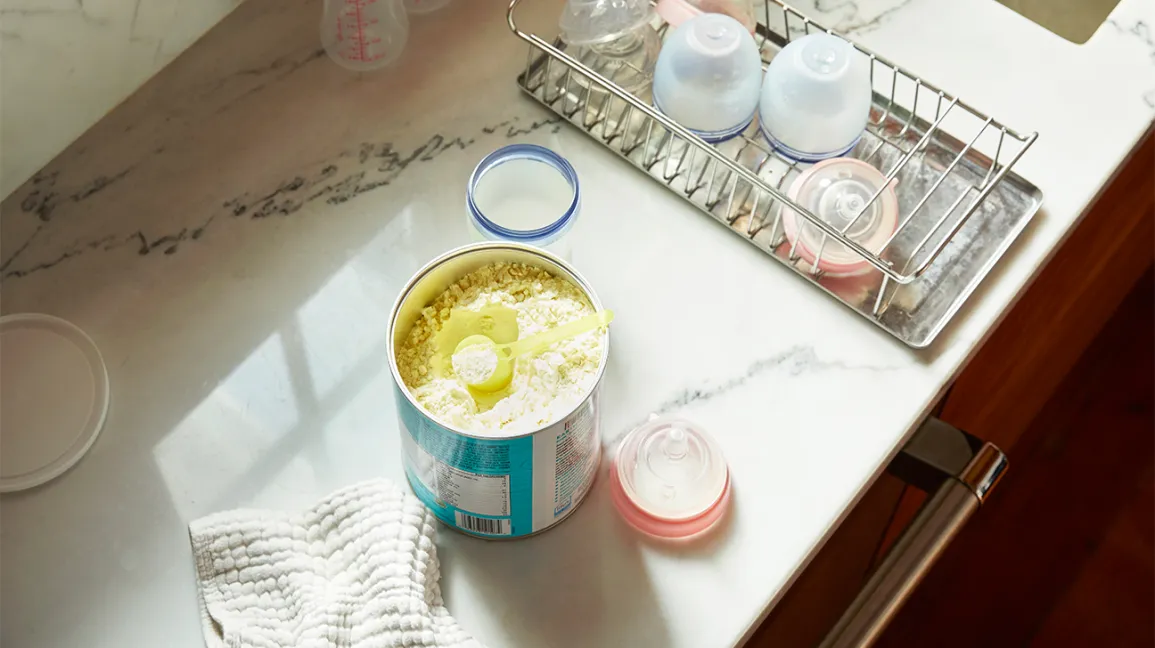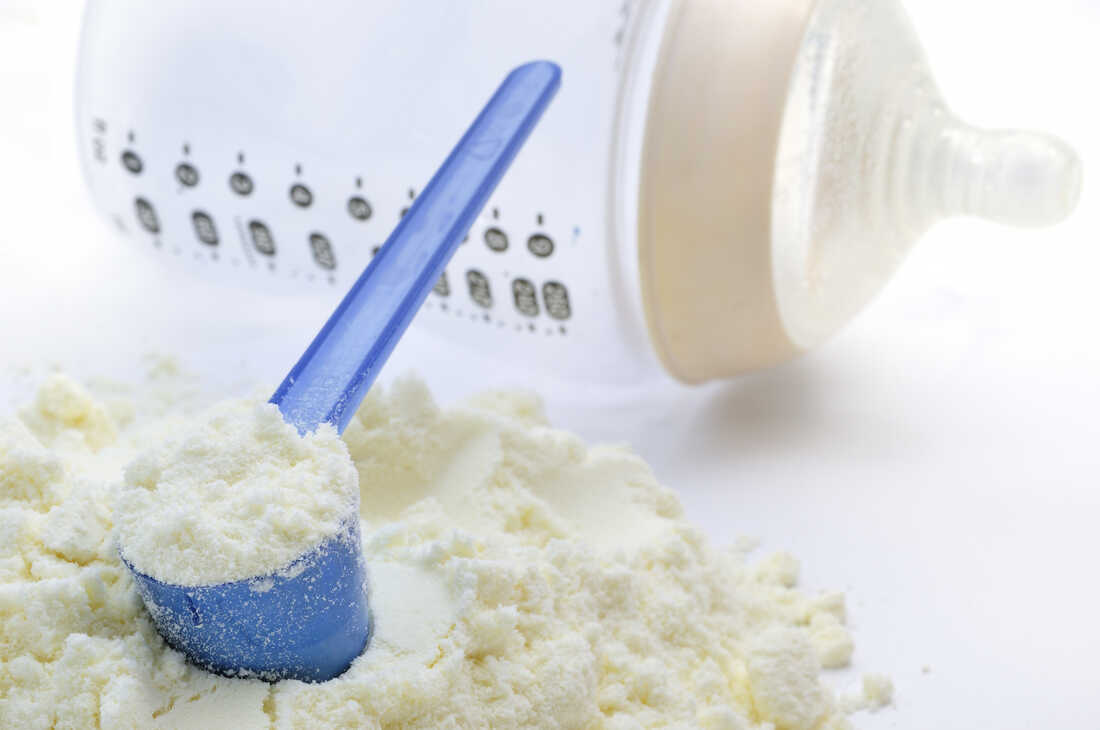Being a parent is said to be a full time job as it consumes a lot of the parents’ day. It is definitely one of the most responsible roles in life and something that never really ends. Once you become a parent, you stay one for the rest of your life. Bringing up children, educating them, showing them the world, and being there for them is something that should never stop simply because you are older and wiser apart from being the parent.
While all of this is true, most of the hardest things come when the child is still a baby, in the first year or two. Having an infant in the house will turn everyone’s life upside down with responsibilities, uncertainties, challenges, and worries. That is all normal though and soon you and your partner will get the hang of things. At least some of them.
Tough Choices

One of the biggest question parents have when their first child is born is whether to breastfeed or not. In the modern day and age there are many alternatives and the mother does not really have to breast feed. Opinions clash all the time and while some say that breast milk has no real alternative, others claim that it is not necessary because baby formulas exist.
Formulas have existed for decades now and they have been improved on many times. In the modern world there is a newfound support for breastfeeding and not having it be a taboo in society. Mothers are encouraged to do it and there are new regulations and movements that attempt to make it available everywhere with proper facilities dedicated to the mother and the baby.
Opting for the Formula

Among the reasons why mothers do not want to breastfeed is their own comfort as well. It can be quite unpleasant for the woman’s body and their own image of themselves. The baby can bite, the breasts may change in shape in size a bit and cause the woman doubts about her newfound physical appearance. It is all subjective and it should be respected. The mother may be lacking milk, or at least enough of it. On top of all that, some babies have trouble breastfeeding and either cannot do it right or refuse to latch on and do it.
The family should not be afraid to reach for the formula in this day and age because most of them are quite close to breast milk, if not completely the same in terms of nutrition and everything the baby needs. In this article we talk about which formula is the closest to the ingredients of breast milk so that you have all the information on your side to make a better educated decision. Read on find out more and be sure to check out Organic Life Start for a perfect product for your infant.
What Is Baby Formula?

Despite many babies using it and many parents choosing it over breast milk, not everyone knows what formula is and what it consists of. In essence, it is a manufactured nutrition product that is developed and made specifically for infants as well as some toddlers. It is made to imitate breast milk the baby would otherwise get form the mother as closely as possible. Some do it better than others, but all FDA approved formulas give the infant everything they need.
However, some are a bit closer to the real thing that others as their ingredients better mimic the same nutrients, vitamins, and minerals breast milk has and in closer amounts. The important thing here is to mention hat cow’s milk is not an option for an infant because it is hard for a baby’s stomach to digest and utilize. It should either be the real, natural alternative in the form of mother’s breast milk or a quality baby formula. There is no third choice. But what does a quality formula imply exactly?
Types and Forms of Baby Formula

Not all products are the same despite being of the same sort, and the same is true for baby formula. Although patterned to provide the same things breast milk does and allow the equivalent amount of everything an infant requires to grow and develop, not all of them are alike. There are actually 6 distinct types. They include milk-based, partially hydrolyzed, extensively hydrolyzed, organic, soy-based, and special formulas.
Milk-based use cow’s milk but are modified for the baby and therefore perfectly safe for their tummies. It is the most common type that most parents pick. It is perfectly digestible for the little one and it is quite different from regular cow’s milk you would drink yourself.
The term partially hydrolyzed refers to the formula being partially digested and it is perfect for infants who struggle with gas or colic. Mind that it is not broken down enough for a baby who is allergic to protein from cow’s milk. On the other hand, extensively hydrolyzed products are predigested and contain milk proteins that are broken down enough for any baby that does not tolerate cow’s milk.
Organic formulas are similar to standard milk-based options but contain organic ingredients. This means organic milk from cows who have been raised organically, fed organic food, and allowed a better, higher quality of life on farms. They are more expensive, just like all other organic food is when compared to traditional. Goat milk formula is another strong contender for breastmilk substitute as it doesn’t cause allergies and constipation.
Soy-based, as the name suggests, uses soy as the main protein and glucose or sucrose as the main carb. Experts advise that this is not the best choice long-term and that it should only be used in rare situations, like galactose intolerance. Make sure to consult your pediatrician about this, more extensively than you would with other choices.
Finally, special formulas exist for babies who have certain diseases as well as for prematurely born babies. Pediatricians work closely with the parents in these cases and pick the best specific formula for the child in question, one containing exactly what they need more of due to the premature birth or a disease.
While browsing for formulas, you will also realize that different forms exist, mainly powdered, liquid, and ready-to-feed. You will have to mix the powdered but it is the most affordable. Liquid formulas only need water and a good shake before consuming. True to their name, those labeled ready-to-feed are the most convenient, as well as the most expensive. No one form is better than the other and all are equally viable options in terms of ingredients.
Conclusion
If you are looking for a formula that is the closest to breast milk, don’t. The fact that they are on the shelf at the store means it does the job, that it has passed all the tests, and that it is perfectly safe. You should think about convenience and price and pick the right type for your baby if it has allergies, intolerances, or a disease. Their preference and your circumstances should dictate the choice, as none of them is 100% the same as breast milk, but all are about 99%.







